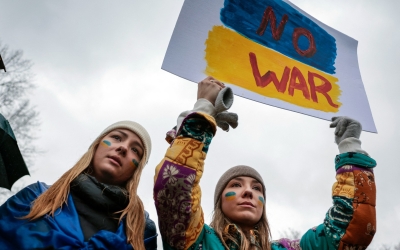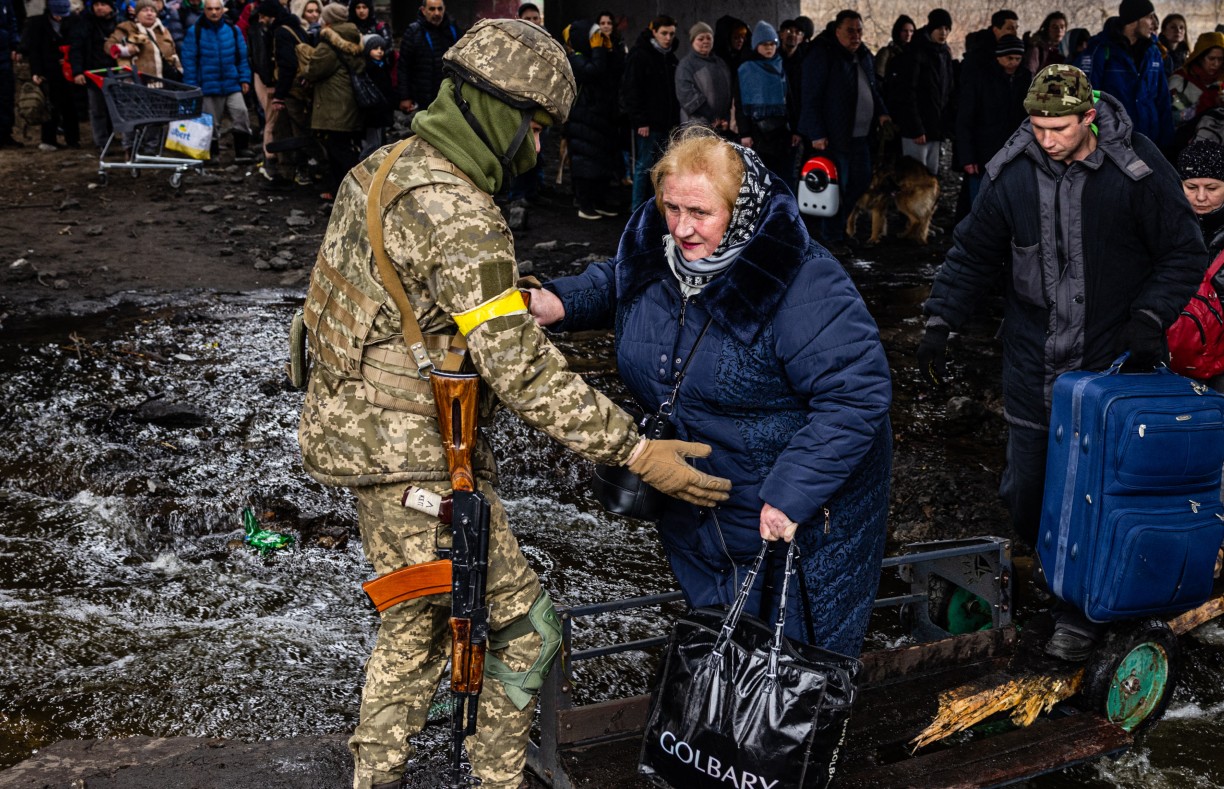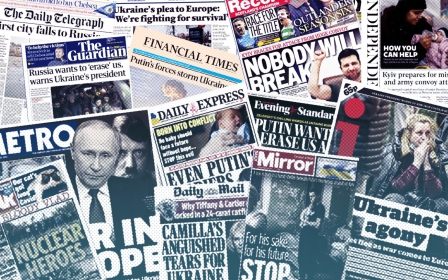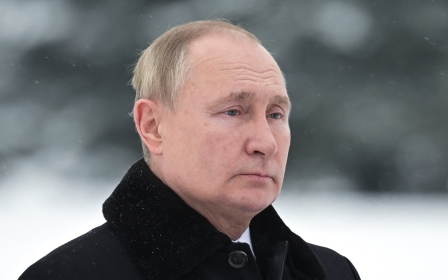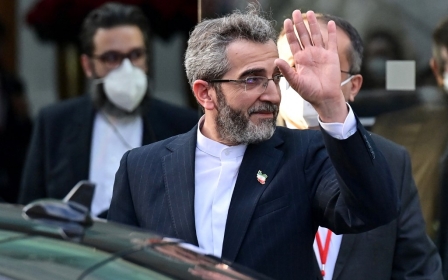Russia-Ukraine war: The West sees its chance for redemption over Iraq
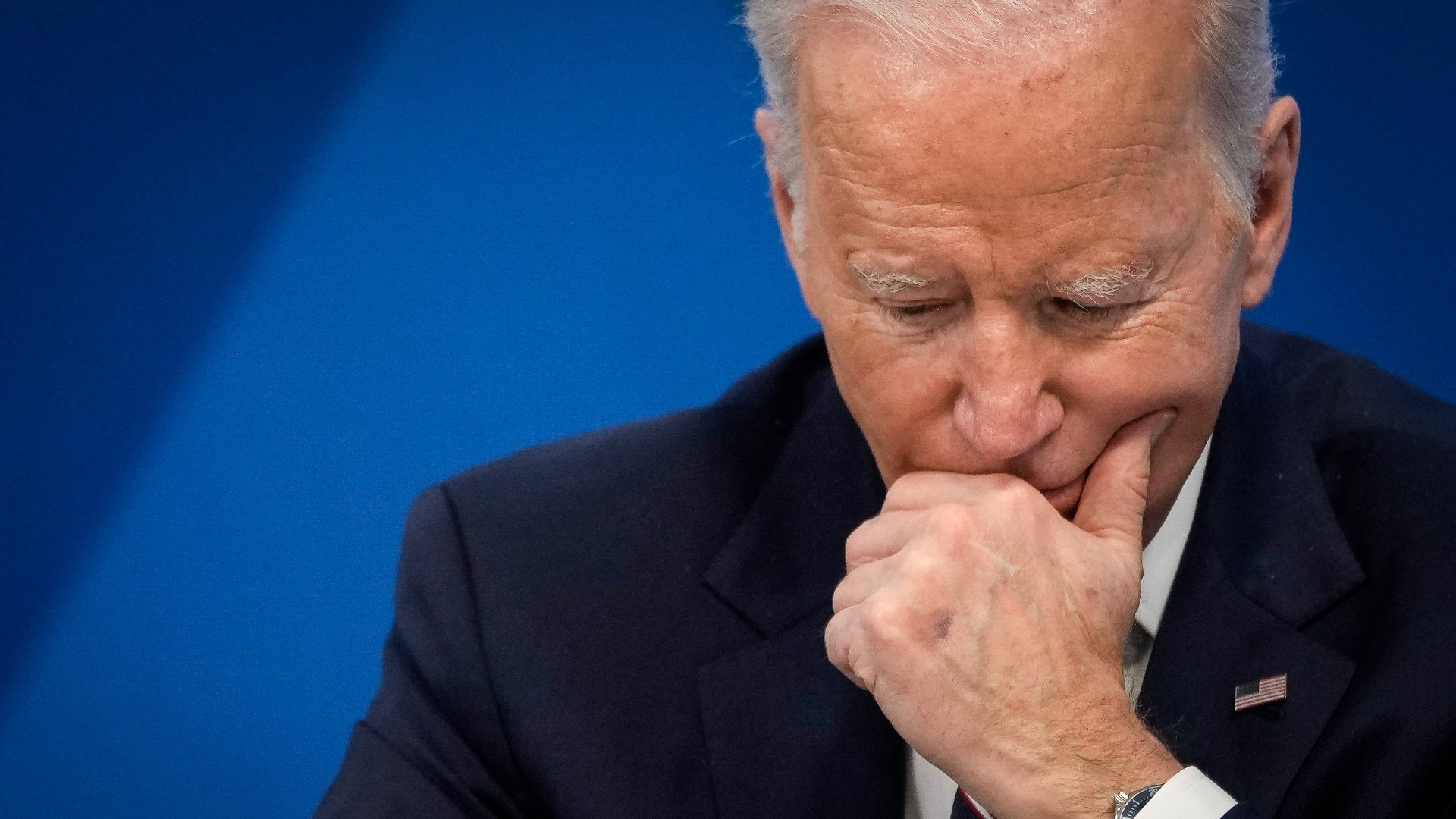
The sometimes hysterical coverage in western media of the Russian invasion of Ukraine is revealing a need, previously concealed, for the West to get its mojo back.
The US-UK invasion of Iraq in 2003 was a serious blow to the long-held claims of western powers that they were the global benchmark of civilisation. They have used these claims to justify moulding the modern world in their image and to shore up their continued domination of international political and financial institutions.
Even at the time, many suspected that former US President George W Bush and his sidekick, British Prime Minister Tony Blair, were lying their way into war on the pretext of destroying nuclear and biological weapons programmes.
Iraqi insurgents quickly turned the West’s mission into a nightmare. And while the invasion’s architects succeeded in striking Iraq from the roster of Israel’s enemies, they had now to contend with the rise of Iran as a regional power.
The consequences of the war in terms of human life were devastating. In the first five years of the conflict, estimates on the total deaths - overwhelmingly of Iraqis, of course - vary from 150,000 to 1 million people. The war also followed 13 years of crushing UN sanctions, which caused the deaths of over 500,000 people, as estimated by UN agencies, largely due to limited access to medicines.
That figure has since been questioned, but the US ambassador to the United Nations in 1996, Madeleine Albright, infamously said at the time that the deaths were “worth it”. She was subsequently promoted to secretary of state.
The occupation, along with that of Afghanistan, also showed the use of torture on a widespread scale, with legal sanction provided by US politicians. And WikiLeaks prolonged the embarrassment with a series of document dumps from 2010 revealing the scale of civilian death and abuse.
The Iraq debacle was one of the factors that set the stage for the rise of a figure like Donald Trump and for Britain to vote to leave the European Union, contributing to the loss of faith voters experienced in the governing class.
Beyond the West, the war came to serve rhetorically like Edward Said’s Orientalism - an event, like a text, whose citation expressed in one breath all the disgust of the non-western world at the bloated claims to superiority of a civilization.
Until now. Because the Ukraine crisis has forced the West to stare into its soul, only to find that it's alive after all.
Atonement
To cite just some examples: neoconservative policy wonk Kori Schake has written that, in attempting to crush Ukraine’s “westernness”, Russian President Vladimir Putin had reaffirmed faith in the universality of western values; British peer Daniel Hannan wrote in the UK's Daily Telegraph that the Russian invasion was an “attack on civilisation” itself and a challenge to western cultural hegemony; Putin’s nemesis Hillary Clinton declared a “state of emergency for democracy” as a global model.
The reputation of US and British intelligence agencies, who told politicians what they wanted to hear to justify the Iraq invasion, has also rebounded after the steady trickle of reports about an impending invasion proved correct. In this regard, US Secretary of State Antony Blinken atoned for the sins of his predecessor, Colin Powell when, at the UN Security Council, he laid out US evidence of Iraqi weapons of mass destruction before the 2003 war.
The talking heads who want to see Ukraine transformed into the graveyard of Putin’s dreams have studiously avoided mentioning Iraq’s name
Yet the talking heads who want to see Ukraine transformed into the graveyard of Putin’s dreams have studiously avoided mentioning Iraq. Blair, who led Britain into the invasion, has been silent, and Bush’s axis-of-evil speechwriter David Frum has restricted his comments to the minutiae of financial sanctions.
But Iraq did come up in a revealing way during an interview with the former US secretary of state, Condoleezza Rice, who occupied the post of national security adviser during the US invasion of Iraq. Staring sheepishly at the camera as the Fox TV presenter pitched that it was a war crime to invade a sovereign nation, Rice responded: “Well it is certainly against every principle of international law and the international order.”
So while it's shocking for Europe to see once again an army march into a neighbouring country to remove a government or seize territory - as so often in its bloody past - the tone of public discourse indicates something else is going on beyond the outpourings of sorrow.
Western hypocrisy
Unfortunately, however, any desire for redemption has been marred by an equally voluminous outpouring of supremacist talk that only reminds the rest of the world of western hypocrisy.
For example, Charlie D’Agata, a reporter with US TV network CBS, said the crisis was shocking because Ukrainians were “relatively civilised, relatively European”, and that Ukraine “isn’t a place, with all due respect, like Iraq or Afghanistan", while a Wall Street Journal article suggested that Russia had veered from the path of civilisation towards its “Asian past”.
From Saturday Night Live’s song for Ukraine to British historian Niall Ferguson spitting fury at digs against the notion of European civilisation to Liz Truss posing in a Russian fur hat like an accounts manager on a weekend break in Moscow - it all smacks of a certain delusion about the West’s place in the world and message unto its peoples.
A delusion with a new lease of life, as the West convinces itself that it's good once more.
The views expressed in this article belong to the author and do not necessarily reflect the editorial policy of Middle East Eye.
Middle East Eye delivers independent and unrivalled coverage and analysis of the Middle East, North Africa and beyond. To learn more about republishing this content and the associated fees, please fill out this form. More about MEE can be found here.



